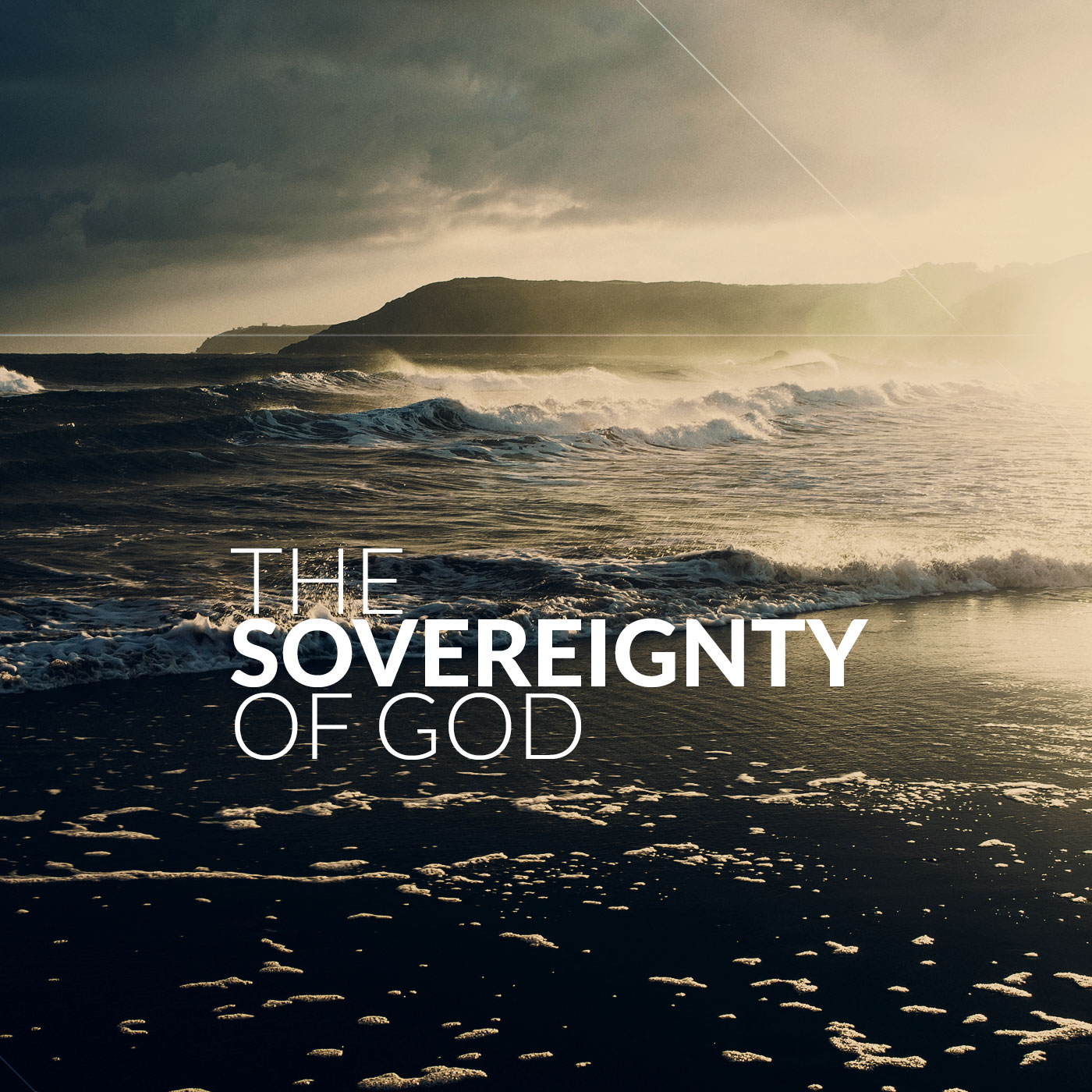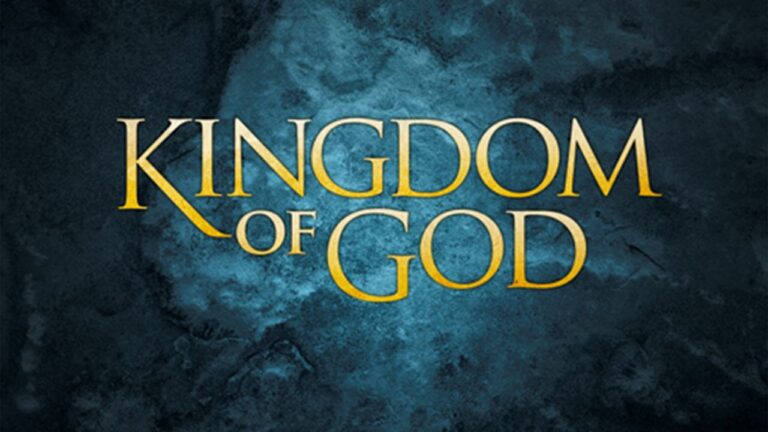Sovereign means possessing supreme or ultimate power, and sovereignty is supreme power or authority. When we say God is sovereign, we mean He is powerful and authoritative to the extent that He can override all other powers and authorities. His sovereignty allows Him to create and uncreate whatever He desires.
In simple terms, He is not accountable to anyone. Whatever He says He will do, that is exactly what He does—no questions asked. Absolutely nothing can stop Him. When all is said and done, Job says:
“I know that You can do all things, and that no purpose of Yours can be thwarted.” — Job 42:2
Daniel 4:35 says:
“He does according to His will among the host of heaven and among the inhabitants of the earth; and none can stay His hand or say to Him, ‘What have You done?'”
That is, nobody can stop Him.
Isaiah 46:9–10:
“For I am God, and there is no other; I am God, and there is none like Me.”
He continues in the next verse:
“My counsel shall stand, and I will accomplish all My purpose.”
There’s nothing He purposes that He does not accomplish. Nothing can stop Him—and He does it all. That is what we call sovereignty.
When Moses asked God what he should tell the Israelites when they asked for His name, God replied:
“I AM THAT I AM. Tell them, ‘I AM has sent me to you.’” — Exodus 3:14
Only the Sovereign God can say, “I AM THAT I AM.” He owes allegiance to no one.
He is sovereign over nature.
Psalm 135:6–7: “Whatever the Lord pleases, He does, in heaven and on earth, in the seas and all deeps. He makes the clouds rise at the end of the earth, He makes lightning for the rain and brings forth the wind from His storehouses.”
Even nature obeys Him. Matthew 8:27 says: “What sort of man is this, that even winds and sea obey Him?”
The winds and sea do His bidding. His sovereignty is limitless. He is Lord over all. Even creation is for His pleasure.
Revelation 4:11: “Thou art worthy, O Lord, to receive glory and honour and power: for Thou hast created all things, and for Thy pleasure they are and were created.”
Sovereignty over Nations
God is sovereign over all the nations. No nation does anything that God does not permit.
2 Chronicles 20:6: “You rule over all the kingdoms of the nations. In Your hand are power and might, so that none is able to withstand You.”
Psalm 33:10–11: “The Lord brings the counsel of the nations to nothing; He frustrates the plans of the peoples. The counsel of the Lord stands forever—the plans of His heart to all generations.”
Sovereignty Over Good and Evil
Do you know God is the One who created evil? His sovereignty allows Him to do that. He also made the poor.
Isaiah 45:7: “I form the light and create darkness: I make peace and create evil: I, the Lord, do all these things.”
Lamentations 3:38: “Do not both adversity and good come from the mouth of the Most High?”
Amos 3:6: “If a trumpet sounds in a city, will the people not tremble? If calamity comes to a city, has not the Lord caused it?”
1 Samuel 2:6–8: “The Lord kills and makes alive; He brings down to the grave and brings up.
The Lord makes poor and makes rich; He brings low and lifts up.
He raises the poor from the dust and lifts the beggar from the ash heap, to set them among princes and make them inherit the throne of glory.
For the pillars of the earth are the Lord’s, and He has set the world upon them.”
Sovereign over who receives salvation or eternal life (Calling and Election)
Before someone can receive salvation, they must first be called by God. It is also God who chooses who inherits His kingdom. He does both the calling and the choosing because it is His sovereign right to do so. It is His sovereign right to call people to Himself, and it is His sovereign right to decide who is chosen among the called.
Matthew 22:14: “For many are called, but few are chosen.”
You can’t come to Jesus unless God calls you. There is no way to enter fellowship with Jesus without God first calling you.
John 6:44: “No one can come to Me unless the Father who sent Me draws him; and I will raise him up at the last day.”
John 6:65: “This is why I told you that no one can come to Me unless it is granted to him by the Father.”
He calls many, but few do His will. Few are willing to take up their cross and follow Jesus. Few are willing to sacrifice self for Jesus, so in the end, few are chosen for everlasting life. Those chosen for everlasting life in Christ Jesus were not chosen at birth or after time began—they were chosen before the creation of the world.
Ephesians 1:3–4: “Blessed be the God and Father of our Lord Jesus Christ… even as He chose us in Him before the foundation of the world, that we should be holy and blameless before Him.”
There is a calling to be made by God, and there is a choosing to be done—by God and only God.
2 Peter 1:10 says,
“Therefore, brethren, be even more diligent to make your calling and election sure…”
So first comes the calling, and then the election—and God does both.
It’s like this: every four years, we elect a president here in Ghana. But before that person can be elected by the electorates, he must first be nominated by his party delegates—that nomination is like the calling.
But when it comes to salvation in Christ, the sovereign God does both the calling (nomination) and the election (choosing).
That’s why in the Bible you’ll sometimes see phrases like “the elect of God” or “the chosen.”
Isaiah 42:1 — “Behold my servant, whom I uphold; mine elect, in whom my soul delighteth…”
Matthew 24:22 — “And except those days should be shortened, there should no flesh be saved: but for the elect’s sake those days shall be shortened.”
Do you realize it says “His elect”?
Also, it’s not those who are merely called who will be raptured, but those who are chosen—the elect.
Matthew 24:31 — “And he shall send his angels with a great sound of a trumpet, and they shall gather together his elect from the four winds, from one end of heaven to the other.”
To be chosen, you must first be called.
Someone may be called, but it doesn’t mean they are chosen or will be chosen by God.
However, anyone who is chosen has definitely been called.
2 Peter 1:10 — “Therefore, brethren, be even more diligent to make your calling and election sure…”
Revelation 17:14 — “These shall make war with the Lamb, and the Lamb shall overcome them: for he is Lord of lords, and King of kings: and they that are with him are called, and chosen, and faithful.”
Have you seen the order in both verses?
First, called; then chosen.
The sovereign God does both.
The fact that God does the calling and election by Himself and for Himself does not mean that He has called anyone to hell or to the lake of fire.
God never chose anyone to be condemned.
It is not His will for anyone to go to hell—No! Never.
1 Timothy 2:3–4 — “For this is good and acceptable in the sight of God our Savior, who desires all men to be saved and to come to the knowledge of the truth.”
John 3:17 — “For God did not send His Son into the world to condemn the world, but to save the world through Him.”
God’s will is for everyone to be saved.
But as written in John 3:19 — “The light has come into the world, and men loved darkness rather than light, because their deeds were evil.”
Though God has the sovereign power to do as He pleases, His will is not for anyone to perish.
2 Peter 3:9 — “The Lord is not slack concerning his promise, as some men count slackness; but is longsuffering toward us, not willing that any should perish, but that all should come to repentance.”
God doesn’t want even a single person to end up in the lake of fire.
But people love darkness more than light.
They choose not to repent—so how can they be saved?
God is also a just and righteous Judge.
There is a punishment for those who reject the truth and practice lawlessness.
Isaiah 33:22 — “For the Lord is our judge; the Lord is our lawgiver; the Lord is our king; he will save us.”
Isaiah 30:18 — “For the Lord is a God of judgment: blessed are all they that wait for Him.”
This life is like a vapor—nothing lasts.
Our hope is in the Resurrection.
Because Jesus rose from the dead, we will too.
God is sovereign over every human decision.
We make all kinds of plans and decisions, but in the end, the Lord’s purpose stands.
Proverbs 16:9 — “The heart of man plans his way, but the Lord establishes his steps.”
Proverbs 19:21 — “Many are the plans in the mind of a man, but it is the purpose of the Lord that will stand.”
Proverbs 21:1 — “The king’s heart is a stream of water in the hand of the Lord; he turns it wherever he will.”
Psalm 115:3 — “Our God is in the heavens; He does all that He pleases.”
Nothing can stop God’s plans.
Joseph told his brothers:
Genesis 50:20 — “You meant evil against me, but God meant it for good, to bring it about that many people should be kept alive, as they are today.”
So the same event can have both a humanly evil intent and a divinely good purpose.
God rules in every affair of man—from the richest to the poorest, the highest to the lowest.
He is the Commander-in-Chief of the universe.
He rules not only over the righteous, but also over the wicked.
Even the devil must seek permission from God before acting.
But there’s one thing God has given us:
Free will—the choice to choose life or death.
Job 12:10 — “In His hand is the life of every living thing and the breath of all mankind.”
Everyone—rich, poor, righteous, wicked, believer, atheist—is in God’s hand.
He determines what each person accomplishes.
He has created both life and death.
Imagine death in His left hand and life in His right.
It is up to you to choose which hand to be in.
Even if you choose death (sometimes unknowingly), you are still in His hands.
You can’t escape Him—whether you believe in Him or not.
When God created Adam and Eve, He could have planted only the tree of good in the garden.
But instead, He planted the tree of the knowledge of good and evil and gave them rules.
Genesis 2:15–17 — “The Lord God took the man and put him in the Garden of Eden to work it and take care of it. And the Lord God commanded the man, ‘You are free to eat from any tree in the garden; but you must not eat from the tree of the knowledge of good and evil, for when you eat from it you will certainly die.'”
God knew before the creation of the world that man would disobey.
Yet He gave them a choice—because He is sovereign.
He is not accountable to anyone.
But He gave Adam and Eve the rules and the consequences.
And they chose to disobey.
Isaiah 64:8 — “But now, O LORD, you are our Father; we are the clay, and you are our potter; we are all the work of your hand.”
Isaiah 29:16 — “Shall the thing formed say of Him who formed it, ‘He has no understanding?’”
We can also learn from how Jesus called His disciples.
Since Jesus is God in the flesh, He has the same sovereign authority as the Father.
(John 10:30 — “I and my Father are one.”)
The disciples were busy with their own work, yet when Jesus said “Follow Me”, they dropped everything immediately.
Imagine you’re at work, and a stranger walks in and tells you to follow him—would you go?
But the disciples did.
Matthew 4:18–20 — “And Jesus, walking by the sea of Galilee, saw two brethren, Simon called Peter, and Andrew his brother, casting a net into the sea: for they were fishers. And He saith unto them, ‘Follow me, and I will make you fishers of men.’ And they straightway left their nets and followed Him.”
Not only Peter and Andrew, but also James and John left their father and their livelihood.
Matthew 4:21–22 — “He called them. And they immediately left the ship and their father, and followed Him.”
Why? Because His call is divine—a sovereign call.
Matthew 9:9 — “As Jesus passed on from there, He saw a man named Matthew sitting at the tax office. And He said to him, ‘Follow Me.’ So he arose and followed Him.”
Just like in Genesis 1:3 — “And God said, ‘Let there be light’: and there was light.”
When God calls, there is an immediate response—because it is a sovereign command.







